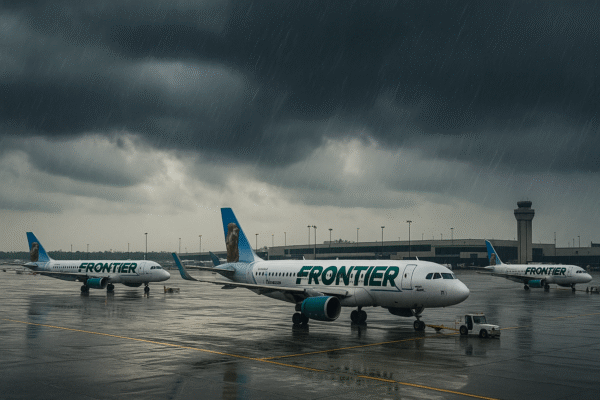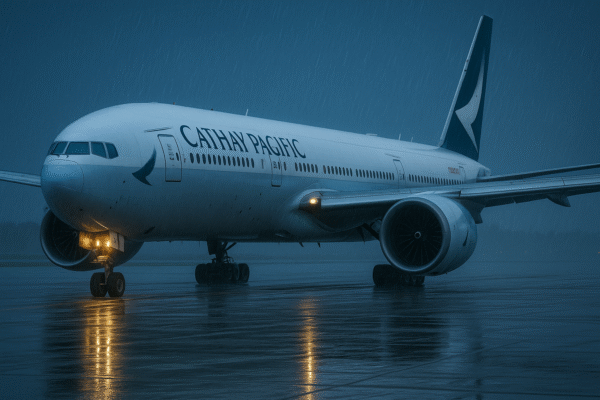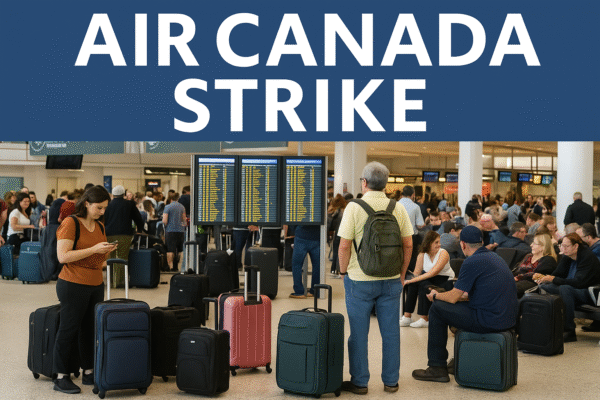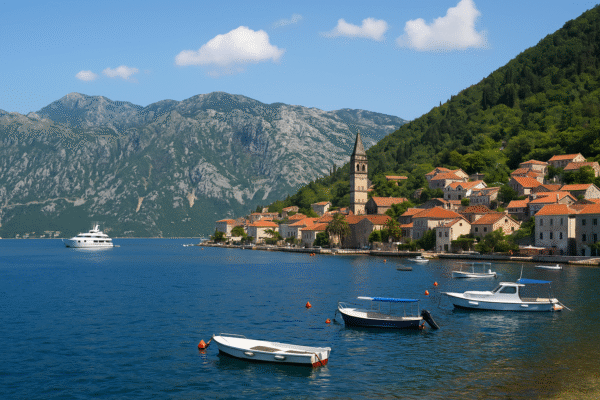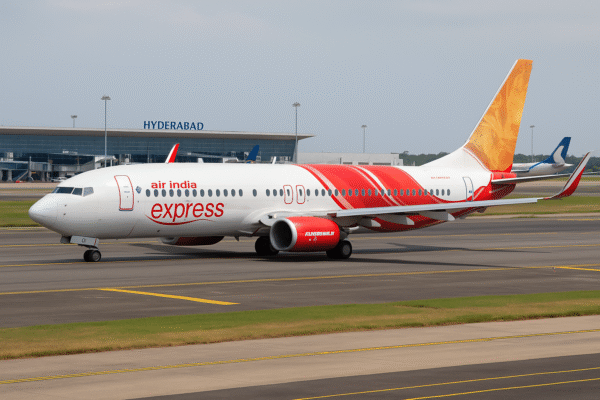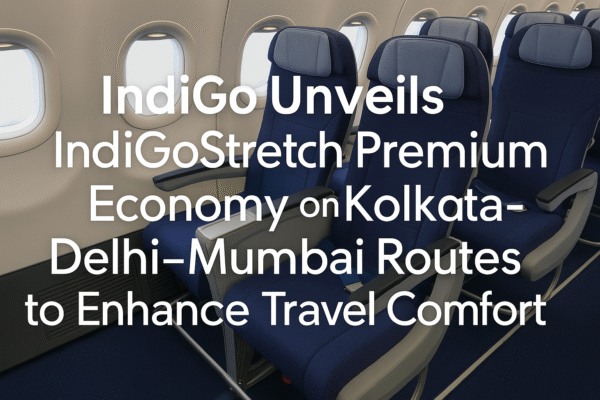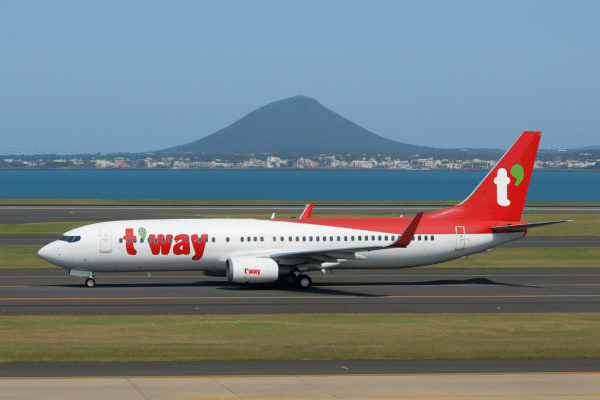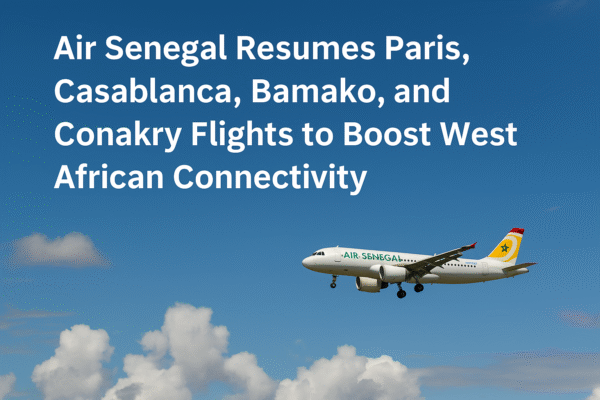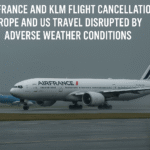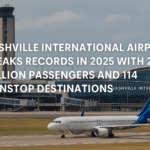Dakar, Senegal – August 19, 2025: Air Senegal has officially restored several of its flagship routes, signaling renewed confidence in its operational capacity and a commitment to strengthening both regional and international air connectivity.
The reinstated routes include Dakar–Paris, Dakar–Casablanca, Bamako–Ouagadougou, Bamako–Abidjan, and Conakry–Abidjan. These corridors are vital for West Africa, acting as arteries for trade, tourism, and economic cooperation between Africa and Europe.
The airline had recently faced disruptions that impacted reliability, but with its corrective measures now in place, Air Senegal has issued an apology to passengers and emphasized its renewed commitment to service efficiency.
Paris–Dakar: A Lifeline for Tourism and Trade
The Paris–Dakar route is one of Air Senegal’s most important services, serving as a key link between West Africa and Europe. Paris Charles de Gaulle is not only a hub for business travelers but also a gateway for European tourists eager to explore Senegal’s cultural heritage, beaches, and UNESCO World Heritage Sites like Gorée Island and Saint-Louis.
This route also strengthens Senegal’s economic ties with the European Union, enabling smoother logistics for exports of agricultural goods, textiles, and artisanal products.
Casablanca: A Global Aviation Hub
The resumption of the Casablanca route is strategically vital. Morocco’s Mohammed V International Airport in Casablanca is one of Africa’s busiest hubs, connecting West African travelers with destinations across Europe, the Middle East, and North America.
By reestablishing this service, Air Senegal not only boosts passenger traffic but also opens doors for regional integration under the Economic Community of West African States (ECOWAS) framework.
Strengthening Intra-African Travel
Air Senegal’s restored routes between Bamako, Ouagadougou, Abidjan, and Conakry highlight the importance of intra-African connectivity. These routes allow for smoother mobility of entrepreneurs, students, and government delegations across West Africa.
- Bamako–Abidjan: Connects Mali’s landlocked economy to Côte d’Ivoire’s bustling port, vital for trade and commerce.
- Conakry–Abidjan: Supports both business relations and tourism between Guinea and Côte d’Ivoire.
- Bamako–Ouagadougou: Strengthens regional diplomacy and facilitates humanitarian cooperation within the Sahel region.
By restoring these flights, Air Senegal is contributing to ECOWAS’ goal of free movement of people and goods, a crucial step toward greater regional economic integration.
Boost to West African Tourism
Tourism boards across West Africa have welcomed the move. According to Senegal’s Ministry of Tourism, international arrivals are projected to rise steadily in 2025 as airlines like Air Senegal improve connectivity.
- Senegal is attracting visitors for its vibrant Dakar nightlife, Pink Lake, and eco-tourism experiences in Casamance.
- Mali offers historical gems like Timbuktu and traditional festivals that draw cultural tourists.
- Côte d’Ivoire is renowned for its modern capital Abidjan and the Basilica of Yamoussoukro.
- Guinea is appealing for its mountains, waterfalls, and music festivals.
With Air Senegal linking these destinations more efficiently, multi-country travel itineraries in West Africa are becoming increasingly accessible for both regional and international tourists.
Economic Growth and Regional Prosperity
The restoration of Air Senegal’s routes is expected to have a direct impact on trade and investment. Improved air access reduces costs and travel times for entrepreneurs, thereby increasing opportunities for cross-border commerce.
According to the World Bank, West Africa’s aviation market is projected to grow by 5–7% annually, with airlines like Air Senegal playing a pivotal role in enabling this growth.
Additionally, the resumption of services will help boost employment, not only in aviation but also in tourism, hospitality, and logistics sectors, thereby supporting local economies.
Commitment to Sustainable Aviation
Air Senegal has also emphasized its long-term focus on sustainability and resilience. The airline is modernizing its fleet with fuel-efficient Airbus A330neo and A321 models, which will reduce emissions and improve efficiency.
In line with the International Civil Aviation Organization (ICAO) climate goals, Air Senegal aims to balance growth with environmental responsibility, ensuring that its expansion supports both economic and ecological sustainability.
Passenger Support and Service Enhancements
To reassure travelers affected by previous disruptions, Air Senegal has introduced new measures to improve customer service, rebooking flexibility, and on-time performance. Passengers can now easily track flights, receive compensation where applicable, and enjoy expanded options for multi-destination travel packages across Africa and Europe.
Conclusion: Air Senegal at the Heart of West Africa’s Aviation Revival
The restoration of Air Senegal’s Paris, Casablanca, Bamako, and Conakry routes represents more than just the reopening of air corridors—it signals a rebirth of West African tourism, trade, and cultural exchange.
As connectivity improves, travelers can expect smoother access to vibrant cities, heritage landmarks, and growing business hubs across the region. With sustainability, economic resilience, and customer service at its core, Air Senegal is not only rebuilding its reputation but also cementing its role as a flagship carrier driving West Africa’s future in global aviation.
For more travel news like this, keep reading Global Travel Wire




